Any week that features the finale of a Yuasa show and Joseph Joestar fighting his own arm has to be a keeper, right? You can’t really go wrong with either of those things. Plus Chaika and Sidonia both pulled off top-tier episodes, so overall I’d say this week was a roaring success. Let’s run it down.
Hitsugi no Chaika 11: We’ve finally reached a Chaika who’s smart enough to actually figure out the game being played here – that they’re all pawns, that they’ve all had goals programmed into them, and that none of them are more valid than any other. And even that puts them above the pieces beneath them – the various tools that were bred only for violent purpose, and now cling to the direction a leader and goal provide. It turns out “Chaika” is a title fairly similar to “soldier” – they’re both weapons built for a cause, with little purpose beyond that.
This show has been fairly lighthearted for a story about post-war anxieties and old soldier ennui, but this episode was nasty. Fredrica could be dead, the girls Toru promised to save already are, Gillete’s may be in the worst position, and things aren’t looking up anytime soon. It was dramatic and fast-paced and full of big-picture revelations and ugly little twists and plenty of action besides. This was a great episode. I’m very excited for the first half’s finale.
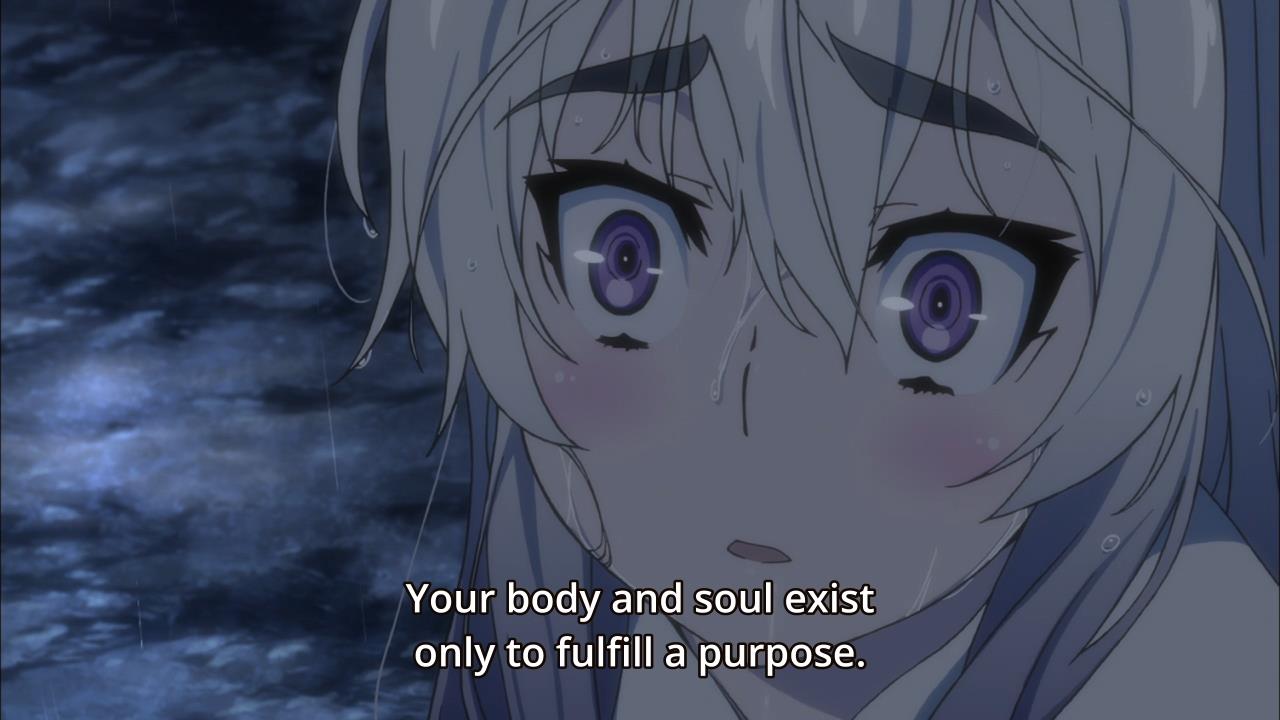
JoJo’s Bizarre Adventure: Stardust Crusaders 11: This episode featured Joseph Joestar getting punched by the cackling tumor growing on his own arm. So, you know, that happened. There was also a lot of Polnareff trying to impart important life lessons to Hol Horse’s paramore/secret Stand-user, which was equally great – her bored expressions were at least as good as the arm-tumor’s crazy ones. It’s nice to get those serenely JoJo moments where you realize you’re watching a sentient arm-tumor attempt to punch through a robot hand to kill the howling grandpa it’s attached to.
Knights of Sidonia 11: Norio seems to get a disproportionate number of the good lines in this show. This time, the first line that jumped at me was “Nowhere is safe if we’re hit by a dwarf planet.” I like how this show constantly juggles the priorities of its characters as individuals versus humanity as a species – it’s kind of cheap to bring up the Titan comparison again, but yeah, this show is kind of effortlessly drawing the lines Titan ineffectually scraped at. We care about Izana, and so his/her (their? fucking gendered pronouns…) anxiety about becoming a pilot seems perfectly reasonable. But then the show immediately jumps to a threat that affects all of Sidonia, and we’re up there in the control room, and suddenly anything less than an optimally efficient human response means total destruction. Nobody’s “right” here, and all of this feeds nicely into the “definition of a human” stuff, meaning that even though this show definitely has some problems on the human drama side, there’s a very tidy holism to its themes and central conflicts.
Granted, all of that is definitely complicated by the fact that Tanikaze occupies such a “hero” role in this story. Normally I’d be kind of inclined to just attribute that to bad writing, and though Sidonia does have some bad writing, given its actual themes, that seems maybe a bit premature. Could he actually be demonstrating some individualist counterpoint to the practicality of Sidonia’s system? I’m not really sure.
Oh, and the second half of this episode was one of the best action scenes of this season. This show is pretty good!
One Week Friends 12: Well, it ended. This episode was fine enough on its own, though it didn’t really do anything to address Hase’s specific personality issues – it was just kind of a generic reconciliation episode. A well-depicted one, but not one that really redeemed the series – I liked the shots and the sound design, but I am just kind of tired of these characters repeating the same things.
Ultimately, One Week Friends rode on solid execution and pleasantness, with the underlying material being too light and repetitive to elevate itself, and the show’s inability to really condemn Hase for his issues resulting in something of a hollow second half. The characters didn’t really rise above their original articulations, and though the art direction, cinematography, and sound design were all unusually good for a show like this, they were let down by a dithering narrative that introduced character conflicts the show was too gentle to meaningfully resolve. I give it a 6/10 – slightly short of a successful show, but elevated to that point by its unusually good aesthetics.
Ping Pong 11: The best show of the season ended in absolutely stellar fashion. I’d say it wasn’t as much of a highlight as 10 was, but episodes 10 and 6 are going to count among the best of the year, so that’s not something I can hold against it. Ping Pong ended the way it had to – focusing not on the immediate, ultimately unimportant drama of Smile and Peco’s final match, but on what that match meant for them, and where they go from here. You can check out my final essay on Ping Pong here, as well as my post on a few of episode 11’s many great details. As with all the greats, I can’t really say “I’m gonna miss this show,” because it’s just so damn rewarding to see a fantastic show end strong.

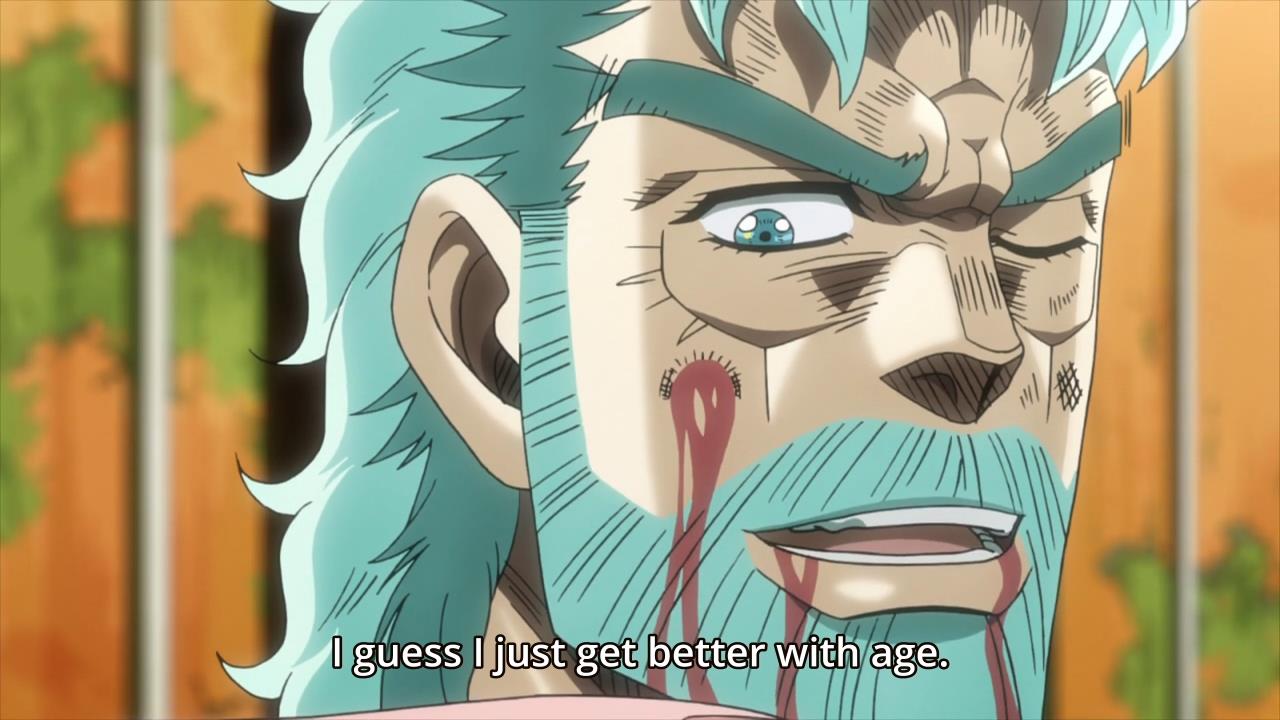
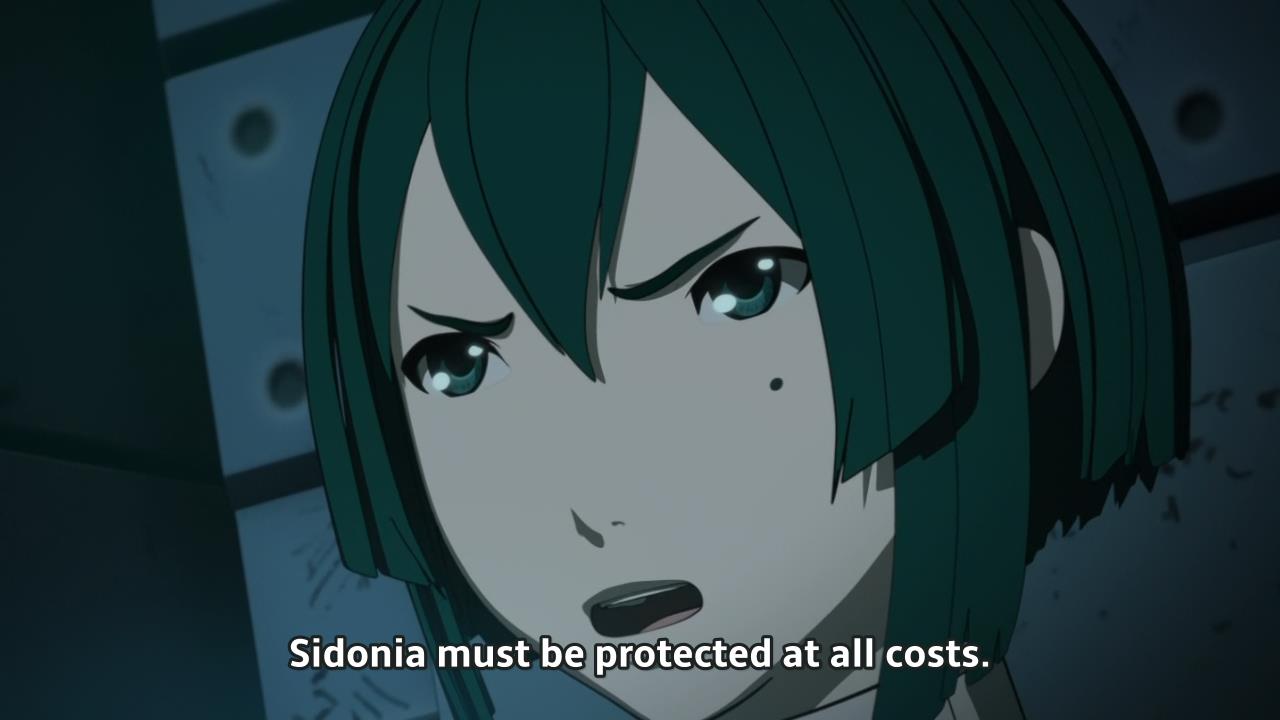
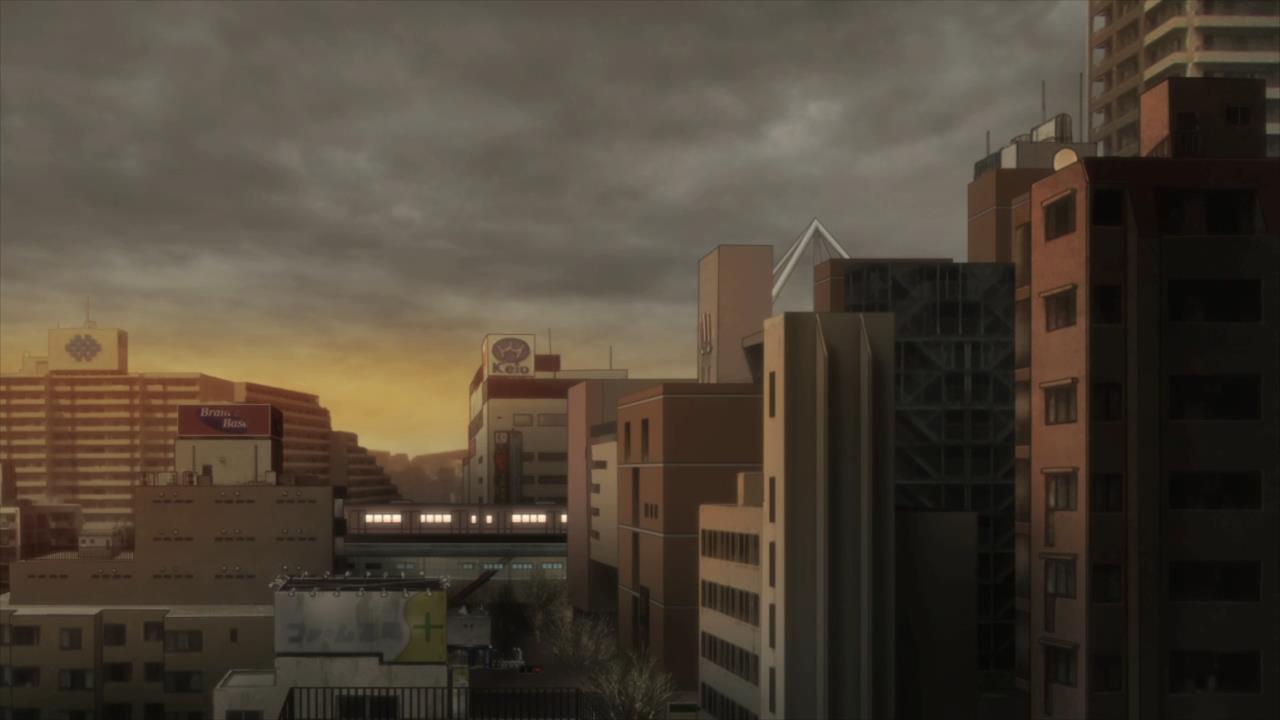
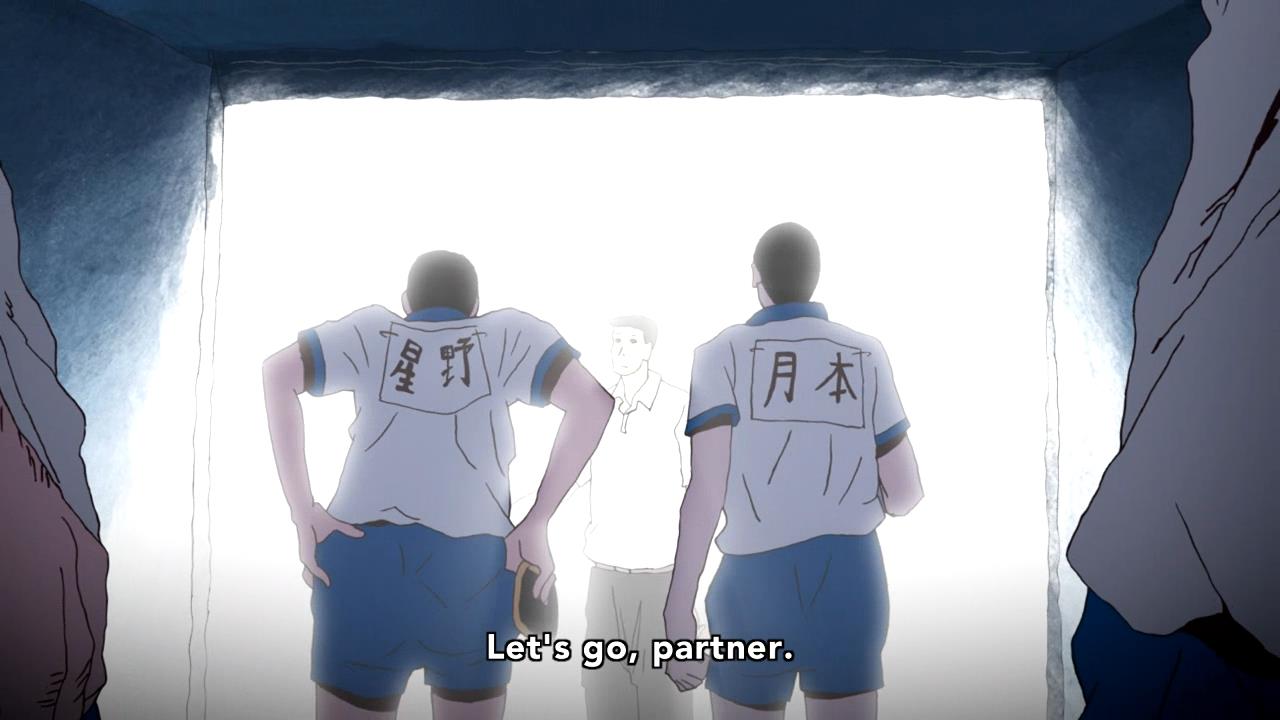
Man, Chaika took a turn for the dark real quick. Way to build the tension! Also, Frederica noooo… that was painful to watch.
Last week, I was a little worried by the fact they introduced absolute villains for the first times, but it turned out pretty well actually.
One of my favourite details was Zitta trying to find reasonning behind all that horror. It somehow made it more meaningfull and emotional for me.
Another nice thing is tnat this Layla may be still fullfilling her goal, even after knowing the truth, even more than before actually. (That actually may have been the goal of the reveal.)
Chaika is definitely the biggest surprise of this season
Yeah, it got heavy quick, but I think it pulled it off
I’d be lying if I said I wasn’t disappointed with One Week Friends in some respects – the first handful of episodes seemed quite a bit stronger than the rest – but weirdly enough, I still finished off the series feeling pretty satisfied. I wish Isshuukan Friends had carried a bit more weight in the substance department, but as you point out here, the execution and overall style was more or less good enough to carry the show on when it started to flounder. (And as final episodes go, it was a nice one. Better than the previous few episodes, I think.)
Welp, only the final episode of Knights of Sidonia to go for me now, as everything else I’ve been watching has finished up as well. Full steam ahead to the summer season!
Yeah, this episode of One Week Friends was pretty solid in the abstract… the last few episodes just put the show in a place where this couldn’t really resolve it. It’s a shame, but eh, summer season ahoy.
Mostly due to the fact that they had to end it on a half note so they do an original ending instead. A shame really since essentially the story never get to step up from the character introductory phase. We were building up towards something and then the momentum just completely lost like that in ep11.
God damn it, what did Frederica ever do to you, show?
It’s just too funny to kill her, apparently
Cackling villains seem to be your favorite.
Either be human or be entertaining!
“OOOOHHHH NOOOOOOO!” was the highlight of my week.
That’s our Joseph!
Somewhat sad that there is no mention of Hunter X Hunter.
I’m still at like episode 125 on that. I’ll hopefully post something once I catch up on all of Chimera Ant.
This has less to do with the week in review, and more to do with anime (and writing) in general.
There are, of course, obvious times when the plot bends to the main character’s will and events just turn out to make him/her look intelligent, but what exactly is your beef with Lelouch? There are several unexplainable events that I can point to, but I have never been under the impression that Code Geass, at the very least, its first season, does not take itself seriously (besides the Chess aspects, which frankly infuriated me at times with Lelouch’s “move the king first” philosophy. In actual Chess, this is idiotic 90% of the time because castling is far more move efficient and exposing the king only allows the opponent more opportunities to play for you- that is, force you to make predictable moves and deliver him the initiative).
To put it in contrast with a show that portrays stupid characters as smart people, I will talk a little about No Game No Life, which although you haven’t not seen the majority of, what you have is pretty indicative of how the plot operates. The siblings win their games through the most absurd ways possible. In episode 4, they win their game of chess “just because”. The enemy king explodes because the enemy player was acting like a dictator and dictators get assassinated by someone in their populace and the Sora somehow anticipated this nonsensical ending. No Game No Life doesn’t even try.
Code Geass at least makes attempts. While Lelouch does play off of the incompetance of his foes, the situations are not entirely unbelievable, although it would also be fair to say that they are a bit of a stretch.
And that also brings me to JoJo. This show is undeniably filled with dry humor. But I’ve always respected the show as a smart show. The characters may not look the role, and the events are extremely exaggerated, but I’ve always held respect for how the author thinks through every power and does his research to justify how characters get out of their situations, especially in the later parts, Diamond is Unbreakable and Stone Ocean. But that can easily be different standards of how much bullshit a viewer can tolerate in the plot.
Lastly, I do want to know what your impressions are of how shows like Death Note or Kaiji portray their characters as smart.
This sums up his points
The Great Firewall of China is obscuring your object. What is it of?
With both JoJo and Code Geass, I feel like situations generally have “magical resolutions” much in the same way NGNL does – the resolution arrived at “makes sense,” but so could any number of other invented solutions based on embracing a certain degree of coincidence/convenience. Which I’m actually fine with, but I see more as spectacle than “character intelligence.”
I haven’t seen Kaiji, but from what I remember of Death Note, it tries to limit that by keeping the relevant variables as few as possible, but still has its own fair share of magical resolutions. Which, again, can be used well or poorly.